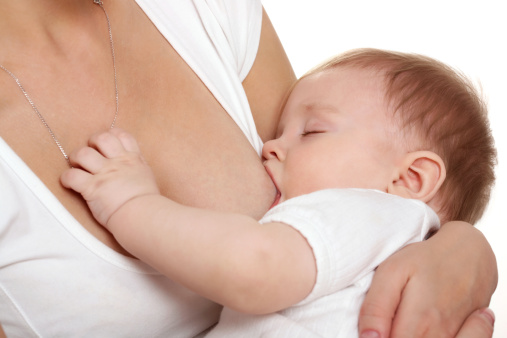Human breast milk is so remarkable that, even under conditions of starvation, it can produce an incredibly dense nutrient profile that remains superior to that of formula milks as the mother’s body will leech from her very bones to feed her child. It follows, therefore, that a mother’s diet will determine, to some degree, the nutritional range of her milk.
Although some research suggests that diet doesn’t affect the amount of fat in her diet, a 1999 Lipids study showed that there could, in fact, be a wide range in fat content based on the mother’s own fat intake with countless studies showing that diet can influence the type of fats available. It has been noted that women on low fat, high carbohydrate diets have the least fat in their milks which, consequently, could have some effect on their baby’s neurological development.
Why is this?
With the exception of fruits and vegetables, carbohydrates represent nutritionally void bulking agents in the human diet. When we consume pasta, bread, rice and other similar carbohydrates we are filling a space that ought to be occupied with more nutritionally dense foods. A nursing mother expends more energy than ever and certain carbohydrates are less efficient energy sources than clean proteins and intact fats. Processed foods are more likely to contain trans-fats which, a recent Canadian study found, can then be found in breast milk.
Essentially, the quality of the food is important.
What should a nursing mother eat?
For optimal healthy fat density, a nursing mother can help by eating essential fatty acids DHA (omega-3) and AA (omega-6). These are found in foods such as:
• Eggs
• Butter (grass-fed, such as Kerrygold)
• Seeds (Flax seeds, Sunflower seeds, Pumpkin seeds)
• Fish oils (Salmon, Tuna etc.)
• Nuts (Cashews, Pecans, Walnuts)
• Avocados
Beyond this, a nursing mother should also seek to take good care of herself. As was mentioned earlier, a nursing mother’s body will leech from itself (bones, muscles, organs…) to feed her baby so it is important for her general wellbeing that her diet is nutritious in order for her to feel her best possible self both short and long term. Though supplements may help, particularly fish oils and vitamin D, they are no substitute for a good diet.
Anyone who is concerned about their diet can start by making small improvements. Replacing some carbohydrates with fats is a good place to start. It is important to mention, however, that even the worst diet produces a quality of breast milk that is far superior to that of any formula milk. Concerns over diet should never lead to the cessation of nursing as it is infinitely more than its simple fat content.







